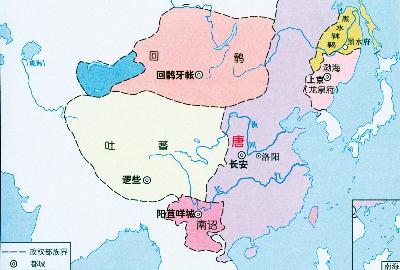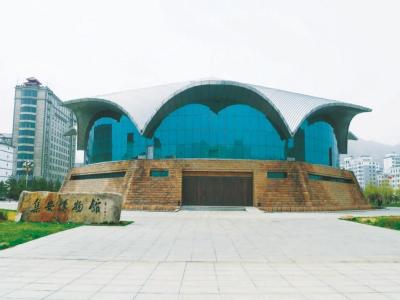- Koguryo and Balhae
- Korea-China History Awareness
Koguryo and Balhae
2. The Northeast Project: Intent and Contrivance
The Northeast Project was a national research project conducted by the Research Center for Chinese Borderland History and Geography in conjunction with the Three Northeastern Provinces Three Northeastern Provinces under the guidance of the Chinese Academy of Social Sciences (CASS) that lasted for five years beginning on February 28th, 2002. The reasons for China's promotion of the Northeast Project can be summarized as follows.
Above all, China is interested in preventing any possible political or social impact that may arise due to future changes expected in the Korean Peninsula and thereby stabilize the northeastern region and cope with shifts in the international order surrounding Northeast Asia.

▲ Research Center for Chinese Borderland History and Geography subordinate to the Chinese Academy of Social Sciences (CASS)

Furthermore, China has attempted to invalidate Korea's recognition of history that Manchuria is the native land of the Korean people and that Gojoseon, Buyeo, Koguryo, and Balhae are all parts of Korean History. By propagating logical fallacies that such historical facts are parts of Chinese history, China is attempting to deny the historical relevance between the Korean Peninsula and China's northeastern region.
China believes that should Korea continue to recognize Gojoseon, Buyeo, Koguryo, and Balhae as parts of its history, then the same phenomenon would naturally occur with Mongolia regarding the History of Yuan, certain Central Asian countries in relation to the History of the Western Regions (Xiyu), and Vietnam with the History of Baiyue and Nanyue from the Qin and Han dynasties, respectively. Such a situation would jeopardize the foundation of China's history, people, and the nation itself. Therefore, China needs to actively contend with the historical reasonings of its surrounding countries to establish its very identity.

▲ Late Tang dynasty territories and distribution of ethnic groups in the Northeast BorderlandBalhae is depicted to be a minority dominion of the Tang dynasty. China middle school textbook "Chinese History" (People's Education Press, p. 25)

The Northeast Project can be considered China's attempt to create a new image of the past to establish historical origins and thus unify its people and territories. The Northeast Project embodies the following logical fallacies through China's view of history in terms of territorial supremacy: considering all current Chinese territories that carried out historical activities as parts of Chinese history; considering all people who conducted such activities in the current Chinese territories as Chinese nationals; and arbitrarily defining territories by retroactively applying modern concepts of territories and borders to ambiguous regions from pre-modern times.
Clearly, Chinese expansionist nationalism is hidden within the Northeast Project in consideration of the following: widening the scope of territories under China's rule by defining tributary states as China's dependents based on tributary and jarlig (imperial decree) relations; strengthening nationalism by using patriotism and the Formation of the Chinese Nation theory as basis for the promotion of the Northeast Project; and practicing cultural hegemony by putting forth the Unified Multi-Ethnic Country theory to undermine the history and culture of surrounding nations.
The historical logic of the Northeast Project was based on the need to address the current problems faced by China rather than historical facts as a result of academic exchanges with neighboring countries or joint investigations related to historical relics. Thus, the Northeast Project emerged without consideration of any neighboring nations and has caused cultural and political conflict especially between China and Korea.
Three Northeastern Provinces
Jilin Province, Liaoning Province, and Heilongjiang Province in the northeastern region of China. The region is home to a large Korean-Chinese community and is closely connected with Korea in terms of history and culture.
닫기
Table of Contents Open Contents
- History in Dispute
- The Northeast Project: Intent and Contrivance
- China’s Claims and Korea’s Perspective
- The Northeast Project: Impact and Response
- Details of the Northeast Project and its Research Results
- Northeast Project Reference List











